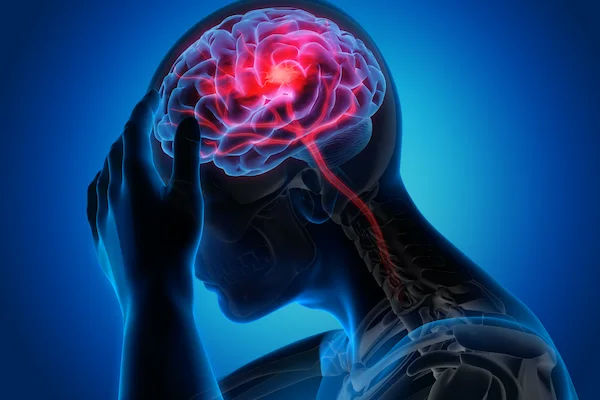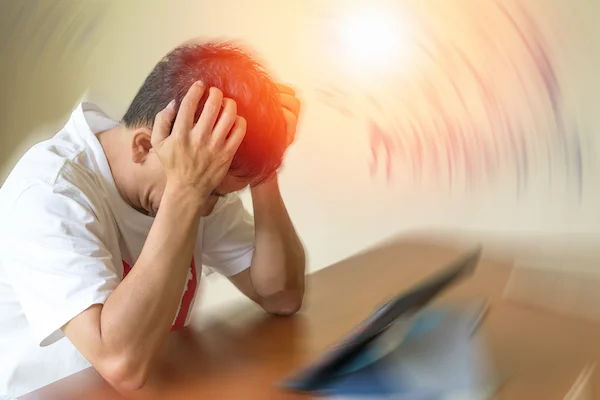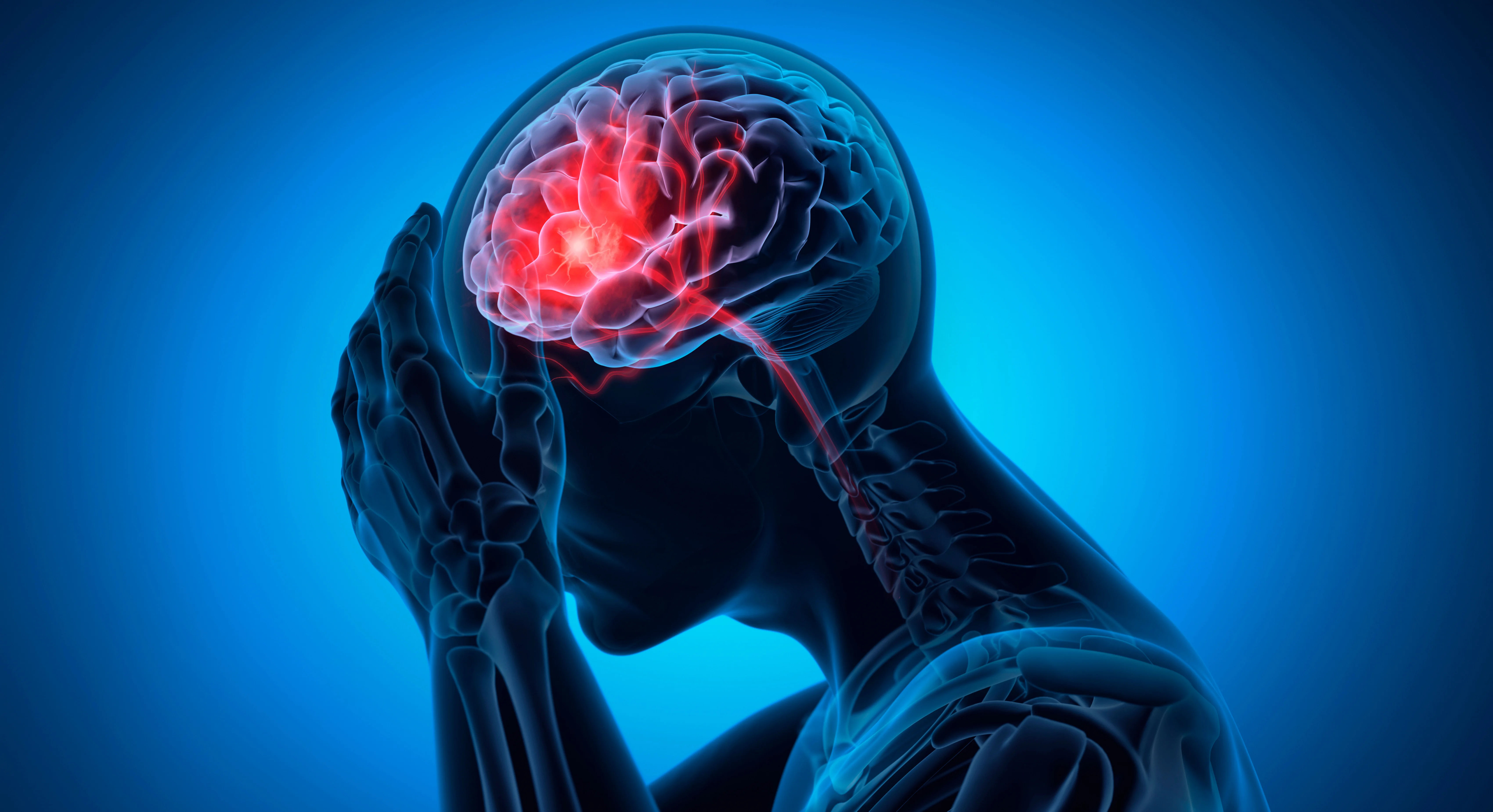Stroke; Your Guide to Prevention, Signs, and Action
Learn about stroke prevention, warning signs, risk factors, treatment, and recovery. Discover how to act fast and reduce your risk.

Written by Dr. J T Hema Pratima
Reviewed by Dr. Rohinipriyanka Pondugula MBBS
Last updated on 13th Jan, 2026

Introduction
Imagine a condition that strikes every two seconds, somewhere in the world, claiming millions of lives and leaving many more with long-term disability. This is the stark reality of stroke. However, there is powerful hope: up to 90% of strokes are preventable. This article serves as your comprehensive guide, moving beyond basic awareness to provide actionable insights. We will delve into the different types of stroke, equip you with the lifesaving knowledge to recognise the warning signs instantly, explore the key risk factors you can manage, and outline effective prevention strategies.
Understanding Stroke: The Basics
To prevent and respond to stroke effectively, it is important to first understand what it is and how it occurs.
What Happens During a Stroke?
There are two primary types of stroke, both requiring urgent medical attention but with different underlying causes.
Ischaemic Stroke: The Most Common Type
Accounting for about 87% of all strokes, an ischaemic stroke happens when a blood clot blocks or plugs an artery leading to the brain. The clot can form directly in the artery (thrombotic stroke) or travel from elsewhere in the body, such as the heart, and lodge in a narrower brain artery (embolic stroke). This blockage starves brain cells of oxygen.
Haemorrhagic Stroke: When a Vessel Bleeds
A haemorrhagic stroke occurs when a weakened blood vessel ruptures and bleeds into the surrounding brain. The accumulated blood compresses the brain tissue, causing damage. High blood pressure and aneurysms (weak spots in blood vessel walls) are common causes. While less common, haemorrhagic strokes are often more deadly.
Transient Ischaemic Attack (TIA): A Warning Stroke
Often called a "mini-stroke," a TIA is a temporary period of symptoms similar to those of a stroke. It is caused by a temporary clot and does not cause permanent damage. However, a TIA is a major warning sign that a full-blown stroke may be imminent. It is a critical opportunity to seek medical help to prevent a more severe, disabling event. If you experience even temporary symptoms, consulting a doctor online with Apollo24|7 for further evaluation is a prudent step.
Recognising a Stroke: Every Second Counts
Acting quickly when symptoms arise is vital to reducing long-term damage and saving lives.
The FAST Acronym: A Lifesaving Tool
The FAST test is an easy-to-remember tool used to identify the most common symptoms of a stroke.
F - Face Drooping: Ask the person to smile. Does one side of the face droop or is it numb?
A - Arm Weakness: Ask the person to raise both arms. Does one arm drift downward?
S - Speech Difficulty: Ask the person to repeat a simple phrase. Is their speech slurred or strange?
T - Time to Call Emergency: If you observe any of these signs, even if they disappear, call emergency services immediately. Note the time when the symptoms first appeared.
Consult a Neurologist for the best advice
Beyond FAST: Other Sudden Symptoms
While FAST covers the key signs, other sudden symptoms can also indicate a stroke emergency:
- Sudden numbness or weakness in the leg.
- Sudden confusion, trouble understanding speech.
- Sudden trouble seeing in one or both eyes.
- Sudden trouble walking, dizziness, loss of balance or coordination.
- Sudden severe headache with no known cause.
Are You at Risk? Key Stroke Risk Factors
Knowing the risk factors for stroke helps you take steps to reduce them wherever possible.
Modifiable Risk Factors (Lifestyle)
These are factors within your control, often linked to lifestyle choices and manageable health conditions:
- High Blood Pressure (Hypertension): The leading cause of stroke.
- Smoking: Damages blood vessels and increases clot formation.
- Diabetes: High blood sugar damages blood vessels over time.
- High Cholesterol: Leads to plaque buildup in arteries (atherosclerosis).
- Physical Inactivity and Obesity.
- Unhealthy Diet: High in saturated fats, trans fats, and sodium.
- Excessive Alcohol Consumption.
Non-Modifiable Risk Factors
These factors are beyond your control but knowing them helps you and your doctor be more vigilant:
- Age: Risk increases significantly after age 55.
- Family History: Having a close relative who had a stroke.
- Gender: While women have a lower overall risk, they are more likely to die from a stroke.
- Race: People of African American, Hispanic, and Asian/Pacific Islander descent have a higher risk.
- Personal History of prior stroke, TIA, or heart attack.
Preventing a Stroke: Strategies for a Healthy Brain
Preventing stroke is largely about managing risk factors through healthy lifestyle choices and regular check-ups.
Diet and Nutrition for Stroke Prevention
Adopt a heart-healthy diet rich in fruits, vegetables, whole grains, and lean proteins. The DASH (Dietary Approaches to Stop Hypertension) diet is highly recommended. Reduce sodium intake to help control high blood pressure and stroke risk, and limit saturated fats to manage cholesterol.
The Role of Physical Activity
Regular exercise helps control weight, lowers blood pressure, and improves cholesterol levels. Aim for at least 150 minutes of moderate-intensity aerobic activity (like brisk walking) or 75 minutes of vigorous activity each week.
Managing Health Conditions like Hypertension
If you have conditions like high blood pressure, diabetes, or high cholesterol, working closely with your doctor is essential. This may include regular monitoring, medication, and lifestyle adjustments. Apollo24|7 offers convenient home collection for tests like lipid profile or HbA1c, making it easier to keep track of your health parameters.
Life After Stroke: Recovery and Rehabilitation
Recovering from a stroke is a gradual process that combines medical care, therapy, and emotional support.
- A stroke can be a life-altering event, but recovery is possible. Stroke recovery is a long-term process that begins in the hospital and continues with rehabilitation. This may involve physical therapy to regain movement, occupational therapy to relearn daily skills, and speech therapy to address communication problems. The support of family, friends, and healthcare professionals is invaluable during this journey, offering hope and improving the quality of life for survivors.
How You Can Create Awareness on Stroke
Raising awareness and supporting prevention efforts can make a real difference in reducing stroke cases worldwide.
You don't have to be a medical professional to make a difference, you can:
- Educate Yourself and Others: Share the FAST acronym on social media.
- Organise or Participate in a Health Check-up Camp.
- Share Stories: Amplify the voices of stroke survivors to inspire others.
Conclusion
Stroke is a serious medical emergency, but it is also one of the most preventable health conditions worldwide. By learning to recognise the early warning signs, managing risk factors, and adopting a healthier lifestyle, you can take powerful steps to protect your brain and overall well-being. Let's pledge to spread knowledge, encourage regular health check-ups, and inspire others to act fast when every second counts. Together, we can turn the tide against stroke and save countless lives.
Consult a Neurologist for the best advice
Consult a Neurologist for the best advice

Dr Debnath Dwaipayan
Neurosurgeon
9 Years • MBBS, MS(Gen. Surgery), DrNB (Neurosurgery)
Delhi
Apollo Hospitals Indraprastha, Delhi

Dr. Uddalak Chakraborty
Neurologist
8 Years • MBBS, MD(GENL.MED.),DM(NEUROLOGY)
Kolkata
MCR SUPER SPECIALITY POLY CLINIC & PATHOLOGY, Kolkata

Dr. Satyan Nanda
Neurologist
13 Years • MBBS, MD - Medicine, DM - Neurology
Delhi
Apollo Clinic East Of Kailash, Delhi
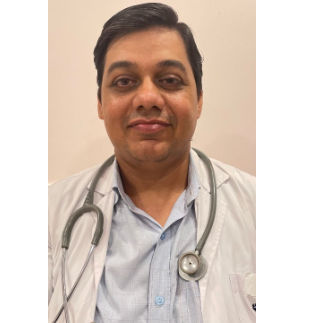
Dr. Shailesh Mohan Badole
Neurologist
8 Years • MBBS, MD (General Medicine), DNB (Neurology)
Manikonda Jagir
Apollo Clinic, Manikonda, Manikonda Jagir
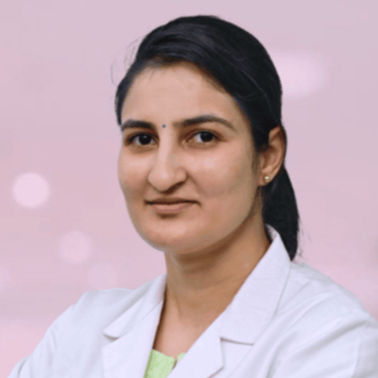
Dr. Soniya Tambe
Neurologist
16 Years • MBBS, MD, DM(NEUROLOGY), FEBN (European board of neurology)
Bengaluru
Apollo Clinic, JP nagar, Bengaluru
Consult a Neurologist for the best advice

Dr Debnath Dwaipayan
Neurosurgeon
9 Years • MBBS, MS(Gen. Surgery), DrNB (Neurosurgery)
Delhi
Apollo Hospitals Indraprastha, Delhi

Dr. Uddalak Chakraborty
Neurologist
8 Years • MBBS, MD(GENL.MED.),DM(NEUROLOGY)
Kolkata
MCR SUPER SPECIALITY POLY CLINIC & PATHOLOGY, Kolkata

Dr. Satyan Nanda
Neurologist
13 Years • MBBS, MD - Medicine, DM - Neurology
Delhi
Apollo Clinic East Of Kailash, Delhi

Dr. Shailesh Mohan Badole
Neurologist
8 Years • MBBS, MD (General Medicine), DNB (Neurology)
Manikonda Jagir
Apollo Clinic, Manikonda, Manikonda Jagir

Dr. Soniya Tambe
Neurologist
16 Years • MBBS, MD, DM(NEUROLOGY), FEBN (European board of neurology)
Bengaluru
Apollo Clinic, JP nagar, Bengaluru
More articles from Stroke
Frequently Asked Questions
What is the difference between a stroke and a heart attack?
A stroke is a 'brain attack' caused by a problem with blood flow to the brain. A heart attack is caused by a blockage in blood flow to the heart muscle. Both are medical emergencies.
Can young people have a stroke?
Yes, while risk increases with age, strokes can occur at any age, including in children and young adults. Factors like congenital heart defects, clotting disorders, and lifestyle choices can contribute to stroke in younger populations.
How long does stroke recovery typically take?
The stroke recovery timeline is highly variable. The most rapid recovery usually occurs in the first three to six months, but improvements can continue for years with consistent rehabilitation. Every survivor's journey is unique.
What are the long-term effects of a stroke?
Long-term effects can include paralysis or weakness on one side of the body, difficulty speaking (aphasia), memory problems, emotional changes, and chronic pain. Rehabilitation aims to maximise independence despite these challenges.
What is the single most important thing I can do to prevent a stroke?
There isn't one single thing, but controlling high blood pressure is arguably the most impactful step. Since hypertension often has no symptoms, regular check-ups are essential. Apollo24|7 offers convenient home collection for tests like vitamin D or HbA1c, and monitoring your blood pressure is just as crucial.
